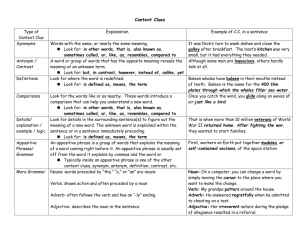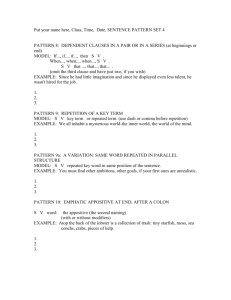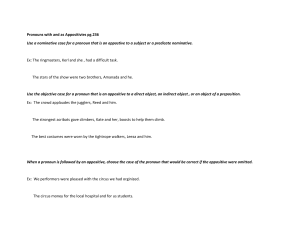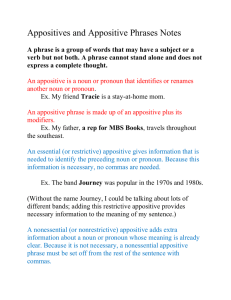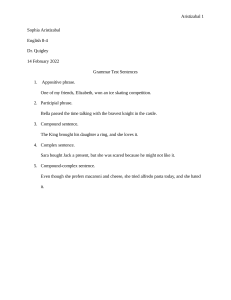Appositives & Appositive Phrases: Grammar Notes & Practice
advertisement
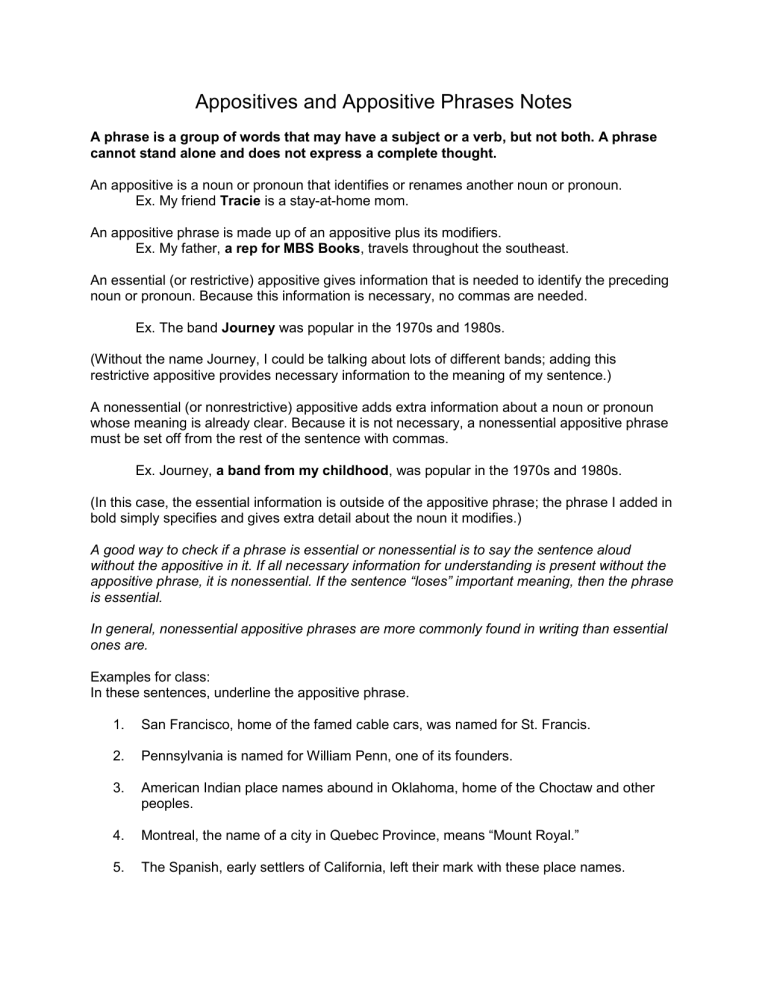
Appositives and Appositive Phrases Notes A phrase is a group of words that may have a subject or a verb, but not both. A phrase cannot stand alone and does not express a complete thought. An appositive is a noun or pronoun that identifies or renames another noun or pronoun. Ex. My friend Tracie is a stay-at-home mom. An appositive phrase is made up of an appositive plus its modifiers. Ex. My father, a rep for MBS Books, travels throughout the southeast. An essential (or restrictive) appositive gives information that is needed to identify the preceding noun or pronoun. Because this information is necessary, no commas are needed. Ex. The band Journey was popular in the 1970s and 1980s. (Without the name Journey, I could be talking about lots of different bands; adding this restrictive appositive provides necessary information to the meaning of my sentence.) A nonessential (or nonrestrictive) appositive adds extra information about a noun or pronoun whose meaning is already clear. Because it is not necessary, a nonessential appositive phrase must be set off from the rest of the sentence with commas. Ex. Journey, a band from my childhood, was popular in the 1970s and 1980s. (In this case, the essential information is outside of the appositive phrase; the phrase I added in bold simply specifies and gives extra detail about the noun it modifies.) A good way to check if a phrase is essential or nonessential is to say the sentence aloud without the appositive in it. If all necessary information for understanding is present without the appositive phrase, it is nonessential. If the sentence “loses” important meaning, then the phrase is essential. In general, nonessential appositive phrases are more commonly found in writing than essential ones are. Examples for class: In these sentences, underline the appositive phrase. 1. San Francisco, home of the famed cable cars, was named for St. Francis. 2. Pennsylvania is named for William Penn, one of its founders. 3. American Indian place names abound in Oklahoma, home of the Choctaw and other peoples. 4. Montreal, the name of a city in Quebec Province, means “Mount Royal.” 5. The Spanish, early settlers of California, left their mark with these place names. In these sentences, add the appropriate punctuation and underline the appositive phrase. 6. The king of the gods Zeus tried to remain impartial. 7. How was the Greek goddess Athena involved in the Trojan War? 8. Thetis Achilles’ mother tried to protect her son from death. 9. She dipped him into the Styx a sacred river. 10. Achilles killed Hector the Trojan king’s son. 11. Achilles mourned the death of his friend Patroclus.
